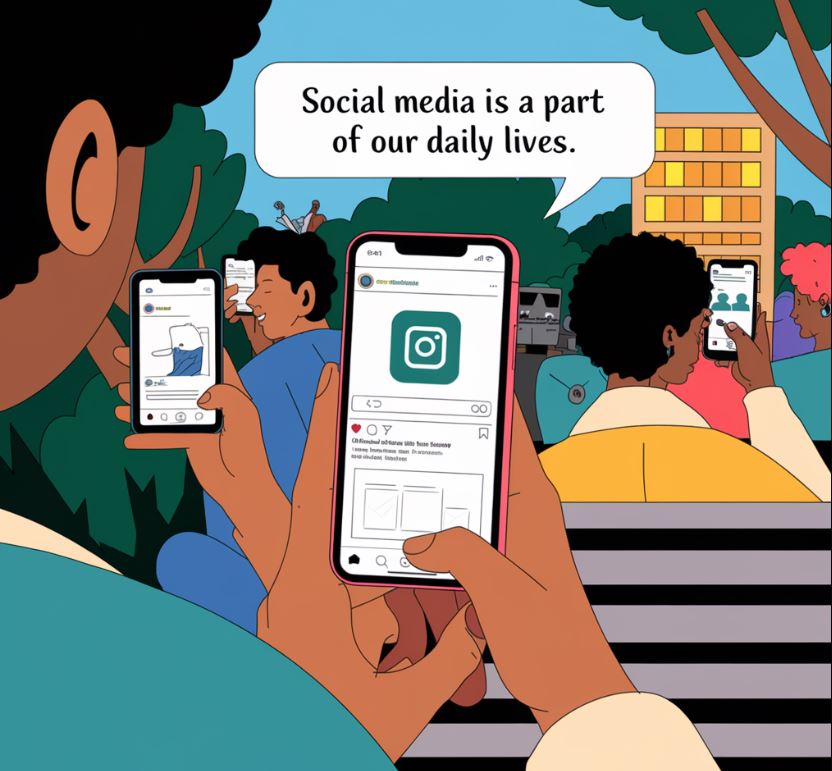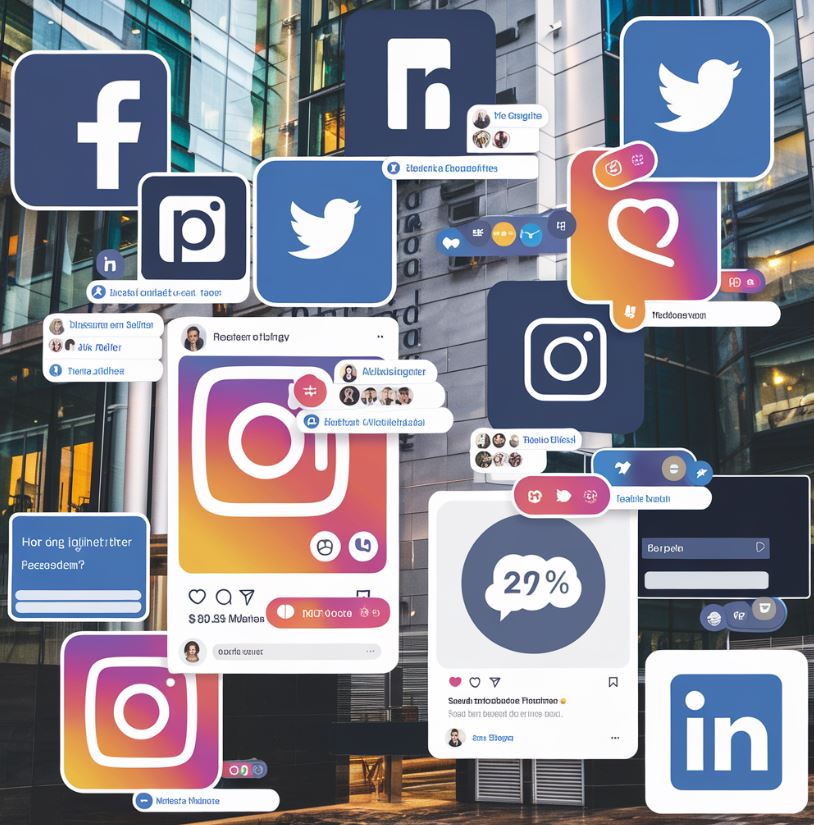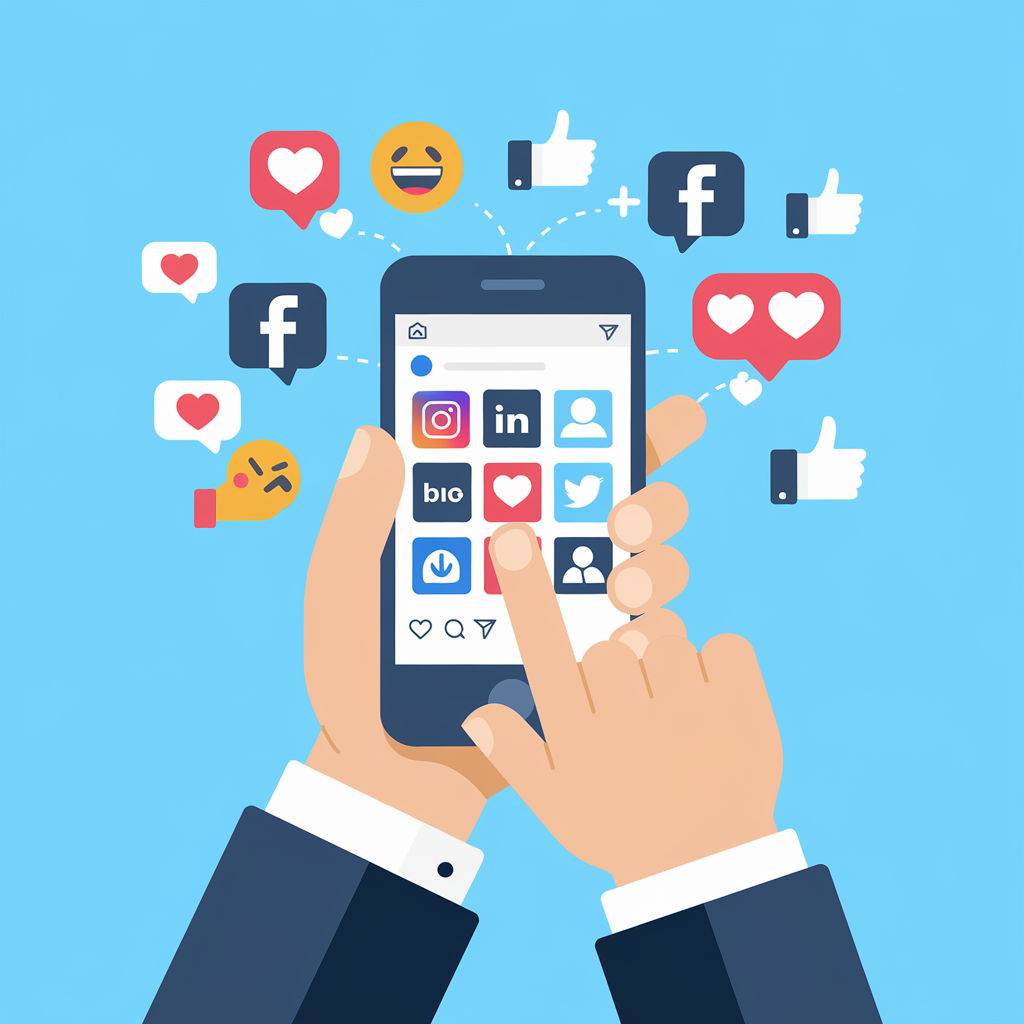Social Media and Loneliness: Understanding the Complex Connection
It was an evening when no one wanted to talk, but Sarah scrolled through Instagram once more, admiring the picture-perfect lives of her friends. Her feed had become a parade of vacations, celebrations, and curated smiles, leaving her feeling like an outsider to her own social circle. The irony? She was more “connected” than ever before. Yet, Sarah often felt an overwhelming sense of loneliness. This is a common scenario in today’s digital age, where social media is both celebrated for its ability to connect us and criticized for fostering feelings of isolation.
However, a recent study published in BMC Psychology offers a surprising perspective on the issue, suggesting that the impact of social media on loneliness is far less significant than we might think. Let’s explore this topic through Sarah’s journey and the findings of the study, uncovering what it truly means to stay connected in a digital world.
The Study That Challenges Assumptions
For years now, experts have been debating with the non-experts and ordinary users, which social media actually affects human mental health. Brings it close or pushes away? Researchers therefore delved deeper into the data and found evidence regarding the relationships between social media usage and feeling lonely.
The results are both surprising and very enlightening. It was discovered that there were very minimal differences in loneliness levels between heavy and light users of social media. This directly challenges the widespread notion that more time online automatically means more feelings of loneliness. Instead, the results show that the relationship between social media and loneliness cannot be as simplistic as it is portrayed.
For Sarah, this meant her late-night scrolling wasn’t the sole reason for her loneliness. The problem wasn’t simply how much she used social media, but how she interacted with it.
The Quality vs. Quantity Debate
As Sarah went through her evening routine, she started thinking about her online activities. She noticed that most of her time spent on social media was passive. She scrolled, liked a few posts, and sometimes watched stories, but never really engaged in meaningful conversations. According to the study, this passive consumption of content might be the culprit.
Researchers insisted that loneliness had more to do with the nature of interactions and not the sheer hours spent on the internet. Sarah’s case wasn’t made by Instagram itself but by how little she created genuine connections while on the internet.
This insight aligns with a growing body of evidence that suggests active engagement, such as commenting on posts or having direct conversations, can enhance the sense of connection. For social media to be a tool for reducing loneliness, users must shift from passive scrolling to intentional, meaningful interactions.
The Double-Edged Sword of Social Media
Whether it is a means to connect or disconnect depends on the way one uses social media. For example, Sarah’s friend Alex was maintaining a tight community of friends scattered all over the world using social media. The regular video calls, shared group chats, and collaborative projects kept Alex highly connected. In contrast, Sarah was just a passive consumer of social media, watching stuff without any contribution.
This difference in nature illustrates the two-faced nature of social media:
As a Connector: Social media allows people to maintain relationships across distances, join communities, and share experiences in real-time. For individuals like Alex, it’s a lifeline for staying socially engaged.
As a Divider: For users like Sarah, social media can amplify feelings of inadequacy and alienation, especially when used passively or when it’s a source of unrealistic comparisons.

The Role of Comparison and Perception
One of the major factors that influence loneliness on social media is the tendency to compare oneself with others. Sarah realized that much of her dissatisfaction stemmed from comparing her everyday life to the highlight reels of her friends. Vacations, promotions, and glamorous events—these curated moments rarely showed the full picture.
The study reveals that this process, called upward social comparison, has a negative impact on mental well-being. Yet, it provides a way out: perception reformulation. Rather than comparing herself to others, Sarah might compare herself to an ideal, such as the post of a celebrity, and instead see inspiration in it or simply appreciate it for what it is—a picture, not the entire story.
Developing Healthier Social Media Behaviors
Sarah was inspired by the study and took action. Here is what she did:
She started engaging directly with her friends by giving thoughtful comments and meaningful conversations. She changed her behavior from a passive one to an active engagement that connected her better.
Boundary Setting: Sarah restricted the use of her screens and allowed certain times for her social media activities. She escaped the infinite loop of scrolling.
Curated Her Feed: Sarah stopped following accounts that made her feel bad about herself and started following profiles that inspired and related to her.
Balanced Online and Offline Life: Social media helped Sarah stay in touch, but she also made sure to spend quality time with people face-to-face. She joined a local book club and spent more time with family.
The Power of Real-World Connections
Of course, social media does supplement our social lives, but it is not a replacement for real-world relationships. And speaking of Sarah, joining the book club was a turning point in her life. With these discussions, bringing laughter and new friends, she reminded herself of the importance of interpersonal relationships.
It has been observed that it is through face-to-face communication with others offline that loneliness can be reduced and mental health improved. Other such activities would be volunteering or becoming part of a community group or even socializing with the loved ones.
The Balanced Approach to Social Media
Sarah’s story is a mirror of the journey many of us go through in the digital age. Social media is neither good nor bad in itself; its impact depends on how we use it. The recent study from BMC Psychology shows that while social media may not significantly reduce loneliness, it does not inherently cause it either.
By shifting our focus to meaningful interactions, setting healthy boundaries, and balancing online and offline relationships, we can harness the benefits of social media without falling into its traps.

Final Thoughts
Loneliness is a complicated emotion pertaining to so many factors, and if social media is considered a small piece of it, then changes involving habits would really work for Sarah. She learned that rather than having so many people, quality matters over quantity, and she realized that connection, whether online or offline, is about depth, not breadth.
Let us remember that social media is just a tool in the digital age, not a replacement for true human connection. With mindfulness and balance, we can use it to enrich our lives rather than detract from them.
Source: BMC Physiology
Read More: ——-> Nexusweekly
